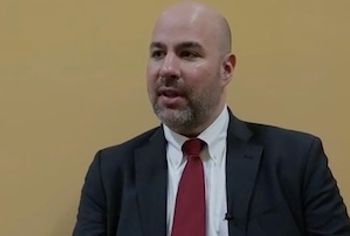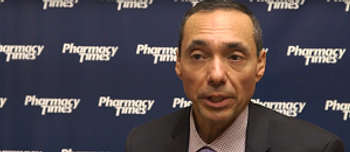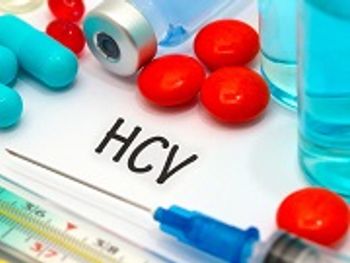
If you want to work as a clinical hospital pharmacist, you better pursue a residency.

If you want to work as a clinical hospital pharmacist, you better pursue a residency.

Timesaving is key, as pharmacists are routinely being asked to do more with less in the hospital setting.

The Director of Pharmacy Services at Peninsula Regional Medical Center, chats with Pharmacy Times adding another layer of safety to compound parental nutrition doses.

It’s crucial for pharmacists to be aware of medications associated with high risk for error and harm to patients, and to look for best ways to implement practices for improving safety and patient care.

In this video, Fred Massoomi, PharmD, discusses the importance of educating future pharmacists about the importance sterile compounding.

Ready-to-use products don't involve human contact, giving them an advantage over other options in terms of safety and efficiency

Similar to smartphone updates, cumbersome drug library updates prevent the drug library from being useful to clinicians.

Regardless of some challenges, one health care system, which is comprised of 16 hospitals ranging from large academic settings to rural locations, has seen success with centralized PN compounding.

Health-system pharmacies can regulate cost-effective and efficient operations for parenteral nutrition compounding practices. Laura Mark, MS, PharmD, FASHP, led a tech talk at the Baxter Booth at the ASHP Midyear Clinical Meeting to discuss parenteral nutrition compounding practices.

Mary Choy, of the Touro College of Pharmacy, feted for her efforts to reduce racial and ethnic disparities in health care.

ASHP honors pharmacists whose volunteer work advances the profession.

ASHP honored several of their own this week at the Midyear meeting.

Sterile compounding is very important for pharmacies.

Pharmacists are always looking to identify emerging trends that will inevitably have an impact on their practice and patient care.

It is important for pharmacists to stay on top of the latest drug safety communications from the FDA, which has provided numerous ways to accomplish that task, according to a presentation at the ASHP Midyear 2016 Clinical Meeting and Exhibition.

It is important for pharmacists to stay on top of the latest drug safety communications from the FDA, which has provided numerous ways to accomplish that task, according to a presentation at the ASHP Midyear 2016 Clinical Meeting and Exhibition.

Marc Scheetz, PharmD, MS, BCPS-AQ ID, associate professor at Midwestern University and clinical pharmacist at Northwestern Medicine, discusses antimicrobial stewardship.

Pharmacists are always looking to identify emerging trends that will inevitably have an impact on their practice and patient care.

Mark Barricklow, RPh, discusses the challenges associated with centralized compounding parenteral nutrition.

William Dager, PharmD, BCPS, FASHP, FCCP, FCCM, MCCM, discusses the use of direct oral anticoagulants.

Specialty market growth highlighted at the American Society of Health-System Pharmacists Midyear Clinical Meeting 2016.

Awards recognize best demonstrated practices and case studies designed to improve pharmacy processes, efficiency, and outcomes.

Trained clinical pharmacists can effectively manage patients with hepatitis C virus.

Trained clinical pharmacists can effectively manage patients with hepatitis C virus, according to research presented at the ASHP Midyear 2016 Clinical Meeting and Exhibition.

Several people were honored this week at Baxter Healthcare Corporation’s Leadership Excellence Awards in Pharmacy, or LEAP, ceremony.

Misuse of antimicrobial agents has contributed to a growing number of infections impervious to antibiotic treatments.

​Fred Massoomi, PharmD, discusses compounding options.

Petrea Cober, PharmD, BCNSP, BCPPS, discusses the challenges of parenteral nutrition education.

Antibiotic resistance has become one of the most serious emerging threats to public health.

Intradepartmental hospital pharmacy groups can play a key role in helping to identify and troubleshoot problem areas.